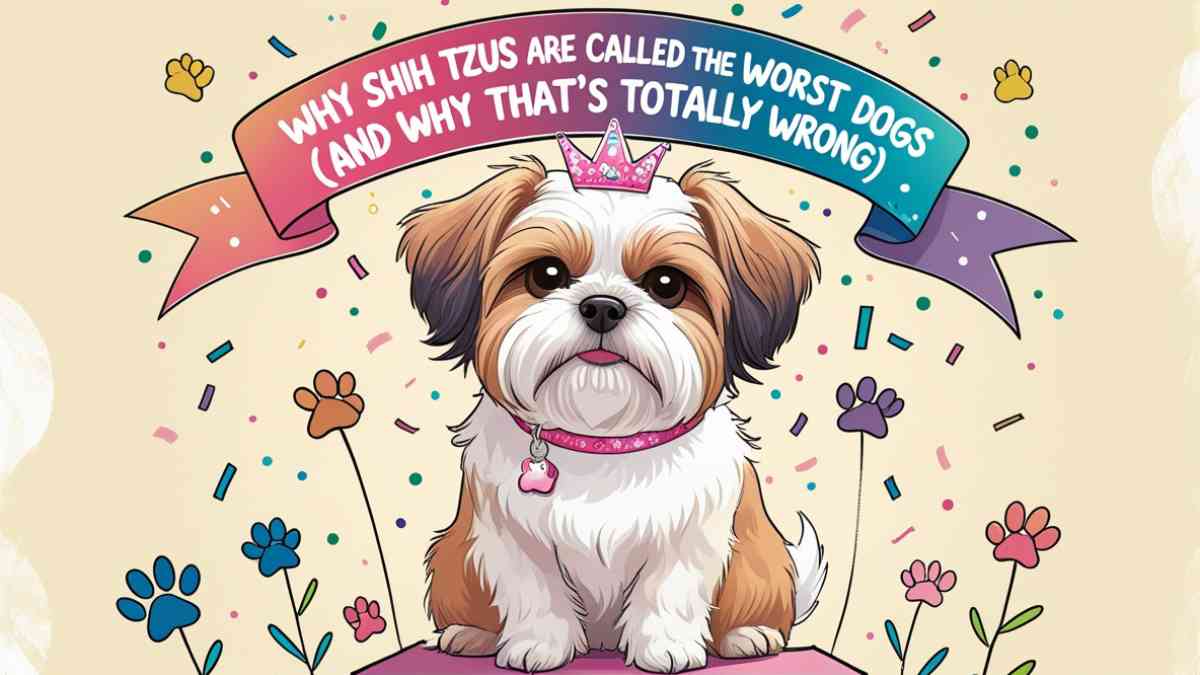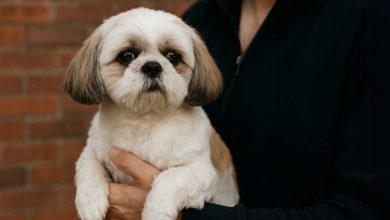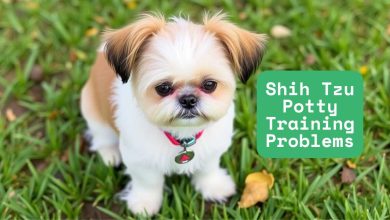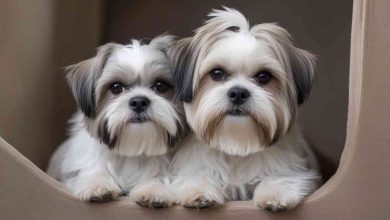Why Shih Tzus Are Called the Worst Dogs (And Why That’s Totally Wrong)

Shih Tzus are among the most visually distinctive and emotionally expressive toy breeds. Their long, flowing coats, short snouts, and soulful eyes make them irresistible to many dog lovers. However, a growing number of online searches ask: “Why Shih Tzu are the worst dog?” This question may seem harsh, but it stems from real challenges faced by owners who weren’t prepared for the breed’s unique needs.
This article aims to clarify why some people feel this way and offer a balanced perspective on the breed’s traits, both the frustrating and the fantastic.
Why Shih Tzu Are the Worst Dog: Understanding the Controversy
The phrase “why Shih Tzu are the worst dog” often reflects owner frustration rather than a factual critique of the breed. People typically use this label after experiencing:
- Difficult training sessions
- Costly health issues
- Daily grooming challenges
- Separation anxiety and clinginess
But in most cases, these issues stem from a poor match between the dog’s needs and the owner’s lifestyle. With the right approach and expectations, these so-called flaws can be managed—if not turned into strengths.
High Grooming Demands
One of the top reasons some call Shih Tzus “the worst” is their intensive grooming needs. This breed’s coat is:
- Long, thick, and double-layered, prone to matting
- Requires daily brushing to prevent knots and skin irritation
- Needs professional grooming every 4–6 weeks
Neglecting grooming can quickly lead to discomfort and even infections, making this breed unsuitable for owners who prefer low-maintenance pets.
Training Challenges
Shih Tzus are smart, but not always eager to please. They tend to have a stubborn, independent streak. Owners often struggle with:
- Housebreaking delays
- Ignoring basic commands
- Disinterest in repetitive training
However, these issues can be resolved with early, reward-based training methods. Shih Tzus respond well to gentle persistence and patience, not force.
Chronic Health Issues
Another reason behind the “why Shih Tzu are the worst dog” label is their vulnerability to certain medical conditions. As a brachycephalic (flat-faced) breed, they often suffer from:
- Brachycephalic Obstructive Airway Syndrome (BOAS)
- Dry eyes and corneal ulcers
- Chronic ear infections
- Dental crowding and gum disease
These conditions mean that owners must be prepared for frequent vet visits and proactive healthcare, making them higher-maintenance than other breeds.
Clingy Nature and Barking Habits
Shih Tzus are bred to be companions, and with that comes a deeply attached, sometimes clingy, personality. They can:
- Suffer from separation anxiety
- Follow their owners constantly
- Bark excessively when anxious or stimulated
These behaviors may be interpreted as annoying or needy, especially in households where the dog is left alone for long hours.
Low Heat Tolerance
Due to their facial structure and thick coats, Shih Tzus are highly sensitive to heat. They should not be:
- Exercised vigorously in warm weather
- Left outside in hot or humid environments
- Expected to handle high-energy activities
In hotter regions, Shih Tzus must be kept in well-cooled, indoor environments, which limits their suitability for some households.
Why the Criticism Is Often Misplaced
Despite these challenges, branding them as the “worst dogs” is misguided. Most issues arise because:
- Owners didn’t research the breed beforehand
- The dog’s traits clashed with the owner’s lifestyle
- Expectations were set too high—or were simply wrong
When their needs are met, Shih Tzus are loving, loyal, and exceptionally devoted pets.
What Makes Shih Tzus Wonderful
On the flip side, Shih Tzus bring immense emotional value and companionship to the right households. Here’s what makes them shine:
- Bred for royalty, they were companions to emperors in ancient China
- Naturally affectionate, gentle, and calm
- Perfect for small spaces, like apartments
- Great with kids and other animals
- Have a lifespan of 12–16 years with proper care
They’re not designed for work or guarding—they’re designed for love and loyalty.
Who Should Avoid Shih Tzus
Though lovable, they’re not the right fit for everyone. You should avoid getting a Shih Tzu if:
- You’re looking for a highly active, outdoorsy dog
- You dislike grooming or vet visits
- You work long hours and leave your pet alone often
- You prefer highly obedient, eager-to-please breeds
Tips for Owning a Shih Tzu Successfully
To make the most of owning this breed:
- Brush their coat daily and trim regularly
- Use gentle, consistent training methods
- Schedule routine vet checkups to monitor breathing, eyes, ears, and teeth
- Avoid excessive heat exposure
- Invest in interactive toys to curb boredom and barking
Meeting their needs isn’t complicated—it just requires commitment and understanding.
Conclusion
The phrase “why Shih Tzu are the worst dog” may be a popular search term, but it’s misleading and unfair. While Shih Tzus do come with specific needs and challenges, they are far from being the worst. Their grooming requirements, health concerns, and stubborn streaks are not flaws—they are natural characteristics of a breed that was never meant to be a one-size-fits-all companion.
The real issue often lies in expectations, not the animal itself. For people who understand the breed and are willing to commit to its care, a Shih Tzu offers unmatched companionship, loyalty, and love. They are perfect for gentle households, small homes, and owners seeking a devoted, affectionate dog.
So before you believe the label, ask yourself: Are you judging the breed, or misunderstanding it? Because to the right person, a Shih Tzu isn’t the worst dog at all—it’s the perfect one.
Discover the truth behind the Shih Tzu myth and choose wisely.




